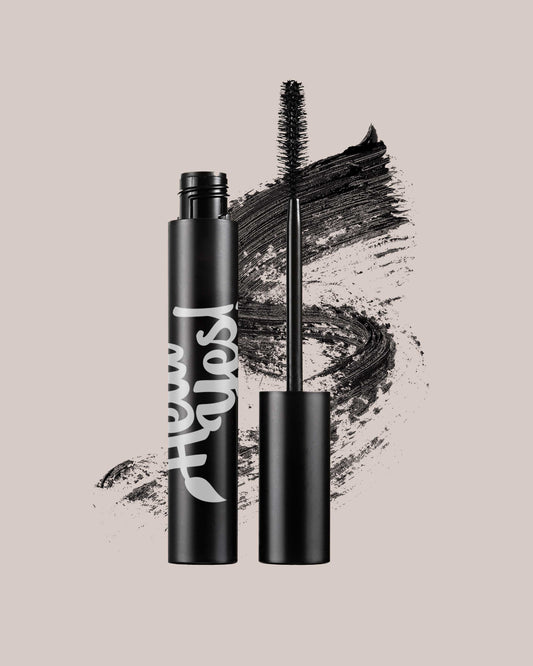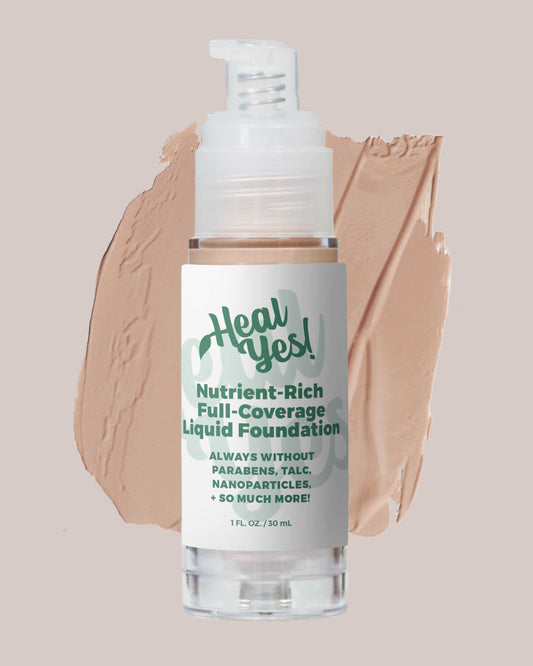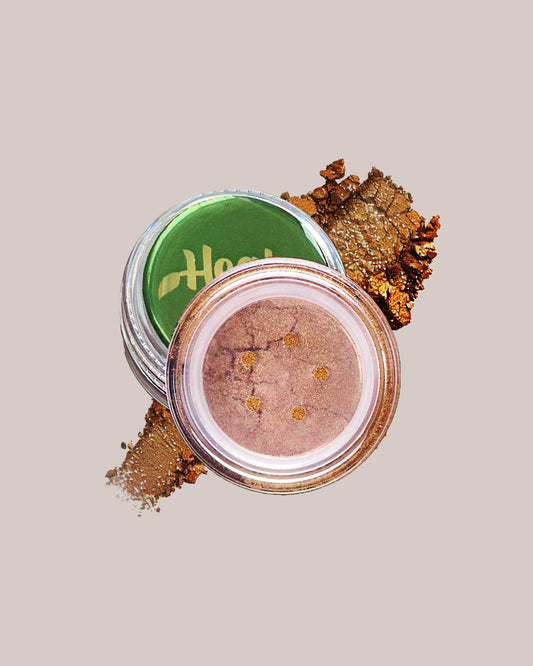Basics of the Pescatarian Diet
At Heal Yes! we believe in promoting holistic wellness through mindful dietary choices, and the pescatarian diet aligns with our philosophy. Let's dive into the fundamentals of this nourishing lifestyle choice.
The pescatarian diet is a balanced and flexible approach to eating that combines the best of both worlds: the health benefits of plant-based foods and the nutritional advantages of seafood.
Pescatarians primarily consume a plant-based diet, rich in fruits, vegetables, whole grains, nuts, seeds, and legumes.
However, they also incorporate seafood—such as fish, shrimp, shellfish, and mollusks—into their meals, making it a more inclusive and versatile dietary pattern compared to strict vegetarian or vegan diets.
What sets the pescatarian diet apart from other dietary patterns is its emphasis on seafood as a primary source of protein and essential nutrients.
While vegetarians and vegans abstain from animal products altogether, pescatarians enjoy the health benefits of fish and other seafood, including omega-3 fatty acids, high-quality protein, vitamins, and minerals.
This unique balance allows pescatarians to reap the nutritional rewards of seafood while still prioritizing plant-based foods for their abundance of fiber, antioxidants, and phytonutrients.
Nutritional Components
Seafood is a nutritional powerhouse, offering a diverse array of essential nutrients that support overall health and well-being. Fish, in particular, is an excellent source of omega-3 fatty acids, including EPA and DHA, which are crucial for heart health, brain function, and inflammation regulation. Additionally, seafood provides high-quality protein, vitamins such as B12 and D, minerals like iodine and selenium, and beneficial compounds like astaxanthin and choline.
Variety and Balance
One of the key principles of the pescatarian diet is variety. By incorporating a wide range of seafood, along with an abundance of plant-based foods, pescatarians can enjoy a diverse and flavorful diet that nourishes the body and tantalizes the taste buds. From wild-caught salmon to sustainably farmed shrimp, there are countless options to explore, each offering its own unique nutritional profile and culinary possibilities.
Stay tuned as we dive deeper into the health benefits, environmental considerations, and practical tips for adopting a pescatarian lifestyle in our upcoming articles.
Health Benefits of a Pescatarian Diet
At Heal Yes! we continue our exploration of the pescatarian diet by delving into the myriad health benefits it offers. From heart health to brain function, the inclusion of seafood in a predominantly plant-based diet brings a wealth of nutritional advantages that contribute to overall well-being.
Heart Health and Omega-3 Fatty Acids
A cornerstone of the pescatarian diet's health benefits lies in its rich source of omega-3 fatty acids, particularly EPA (eicosapentaenoic acid) and DHA (docosahexaenoic acid). Found abundantly in fatty fish like salmon, mackerel, and trout, these essential fatty acids play a crucial role in cardiovascular health by reducing inflammation, lowering triglyceride levels, and improving blood vessel function.
Regular consumption of omega-3-rich seafood has been associated with a reduced risk of heart disease, stroke, and other cardiovascular conditions, making it a cornerstone of heart-healthy eating.
Cognitive Function and Brain Health
In addition to supporting heart health, the omega-3 fatty acids found in seafood are also vital for brain function and cognitive health. DHA, in particular, is a key component of brain cell membranes and plays a crucial role in neurotransmitter signaling, synaptic plasticity, and overall cognitive performance.
Research suggests that regular consumption of omega-3-rich fish may help protect against age-related cognitive decline, improve memory and concentration, and reduce the risk of neurodegenerative diseases such as Alzheimer's and dementia.
Protein Quality and Muscle Maintenance
While plant-based foods provide an abundance of nutrients, seafood stands out as an exceptional source of high-quality protein. Unlike many plant proteins, which may lack certain essential amino acids, seafood offers a complete amino acid profile that is easily absorbed and utilized by the body.
Adequate protein intake is essential for muscle maintenance, repair, and growth, as well as for supporting immune function, hormone production, and enzyme activity. By including a variety of seafood in their diet, pescatarians can ensure they meet their protein needs while enjoying delicious and satisfying meals.
Nutrient Density and Vitality
Beyond omega-3 fatty acids and protein, seafood is packed with an array of essential vitamins, minerals, and antioxidants that promote overall health and vitality.
Fish such as sardines and anchovies are rich in calcium and vitamin D, supporting bone health and immune function, while shellfish like oysters and mussels provide iron, zinc, and selenium for energy production and immune support.
Additionally, seafood contains beneficial compounds like astaxanthin, a powerful antioxidant that may help reduce inflammation and oxidative stress, and taurine, which supports cardiovascular health and vision.
From supporting heart health and brain function to providing high-quality protein and essential nutrients, seafood plays a crucial role in promoting overall well-being and vitality.
Environmental and Sustainability Considerations
At Heal Yes! we recognize the importance of not only nourishing our bodies but also protecting the planet for future generations. Next, we examine the environmental and sustainability considerations associated with seafood consumption.
Environmental Impact of Fishing Practices
Commercial fishing practices can have significant environmental consequences, including overfishing, habitat destruction, and bycatch. Overfishing occurs when fish stocks are depleted beyond sustainable levels, disrupting marine ecosystems and threatening the balance of marine life.
Certain fishing methods, such as bottom trawling and dredging, can damage sensitive habitats like coral reefs and seagrass beds, further exacerbating environmental degradation. Bycatch, the unintentional capture of non-target species, also poses a threat to marine biodiversity, leading to the decline of vulnerable species and ecological imbalance.
Importance of Sustainable Seafood Sourcing
To mitigate the environmental impact of seafood consumption, it is essential to prioritize sustainably sourced seafood from responsibly managed fisheries and aquaculture operations. Sustainable seafood practices aim to minimize the ecological footprint of fishing activities while safeguarding marine biodiversity and supporting coastal communities.
This includes adhering to catch limits, implementing gear modifications to reduce bycatch, avoiding destructive fishing methods, and promoting ecosystem-based management approaches.
By choosing certified sustainable seafood products and supporting seafood eco-labeling programs, consumers can play a vital role in promoting responsible fishing practices and fostering marine conservation efforts.
Sustainable Aquaculture and Fish Farming
In addition to wild-caught seafood, aquaculture—also known as fish farming—provides an alternative source of seafood that can help alleviate pressure on wild fish stocks and reduce the environmental impact of fishing.
However, not all aquaculture practices are sustainable, and certain intensive farming methods can contribute to pollution, habitat degradation, and disease transmission.
Sustainable aquaculture operations prioritize environmental stewardship, animal welfare, and social responsibility by implementing best management practices, minimizing pollution and waste, and sourcing feed responsibly.
By supporting certified sustainable aquaculture products and advocating for responsible aquaculture practices, consumers can promote the growth of environmentally friendly seafood production methods.
Consumer Education and Empowerment
Empowering consumers with knowledge about sustainable seafood sourcing and environmental conservation is essential for promoting informed dietary choices and driving positive change in the seafood industry.
By raising awareness about the environmental impact of fishing practices, promoting transparency in seafood labeling and supply chains, and providing resources for sustainable seafood consumption, organizations and individuals can empower consumers to make environmentally conscious decisions when selecting seafood products.
Through collective action and collaboration between stakeholders, we can work towards a more sustainable and resilient seafood industry that supports both human and planetary health.
By prioritizing sustainably sourced seafood and supporting responsible fishing practices, pescatarians can enjoy the nutritional benefits of seafood while minimizing their environmental impact.
Practical Tips and Considerations for Adopting a Pescatarian Lifestyle
One of the key principles of the pescatarian diet is variety. Incorporating a diverse range of seafood, along with an abundance of plant-based foods, ensures you receive a wide array of essential nutrients to support overall health and well-being.
Experiment with different types of fish, shellfish, and mollusks, as well as a variety of fruits, vegetables, whole grains, nuts, seeds, and legumes, to keep your meals interesting and nutritionally balanced.
Prioritize Sustainable Seafood
When selecting seafood, prioritize products that are sustainably sourced from responsibly managed fisheries and aquaculture operations. Look for eco-certifications such as the Marine Stewardship Council (MSC) or Aquaculture Stewardship Council (ASC) labels, which indicate that the seafood has been harvested or farmed using environmentally friendly practices.
Additionally, consult seafood guides and online resources to learn more about sustainable seafood options and avoid species that are overfished or harvested using destructive methods.
Plan Your Meals and Shop Mindfully
Meal planning is essential for success on a pescatarian diet. Take time to plan your meals for the week, incorporating a balance of seafood and plant-based ingredients to ensure you meet your nutritional needs.
Make a shopping list and visit local markets, fishmongers, or grocery stores that offer a variety of fresh and sustainably sourced seafood options. Consider purchasing frozen seafood as a convenient and budget-friendly alternative, and stock up on pantry staples like whole grains, beans, and spices to enhance your meals.
Get Creative in the Kitchen
Explore new recipes and culinary techniques to make the most of your pescatarian diet. From grilled fish tacos and seafood paella to roasted vegetable salads and creamy seafood chowders, the possibilities are endless.
Experiment with different cooking methods, such as baking, grilling, steaming, or pan-searing, to bring out the natural flavors of seafood and create delicious and nutritious meals that satisfy your taste buds.
Listen to Your Body and Adapt Accordingly
Listen to your body and pay attention to how different foods make you feel. If you find that certain types of seafood or plant-based ingredients don't agree with you, don't hesitate to make adjustments to your diet accordingly. Consult with a healthcare professional or registered dietitian if you have specific dietary concerns or health conditions, and work together to create a personalized pescatarian meal plan that meets your individual needs and goals.
By embracing variety, prioritizing sustainable seafood, planning your meals mindfully, getting creative in the kitchen, and listening to your body, you can enjoy the numerous benefits of the pescatarian lifestyle while promoting personal and planetary health. At Heal Yes! we're committed to empowering you to make informed dietary choices that nourish your body, mind, and soul.
FAQs: Pescatarian Diet
What exactly is a pescatarian diet?
A pescatarian diet is a primarily plant-based eating pattern that includes seafood. Pescatarians consume a wide variety of fruits, vegetables, whole grains, nuts, seeds, and legumes, along with fish, shrimp, shellfish, and mollusks as their primary sources of protein.
What are the health benefits of a pescatarian diet?
A pescatarian diet offers numerous health benefits, including improved heart health due to the omega-3 fatty acids found in seafood, enhanced cognitive function and brain health, high-quality protein for muscle maintenance, and a wealth of essential vitamins, minerals, and antioxidants that promote overall well-being.
How can I ensure I'm getting enough protein on a pescatarian diet?
Seafood is an excellent source of high-quality protein, but you can also incorporate plant-based protein sources such as beans, lentils, tofu, tempeh, and quinoa into your meals to ensure you meet your protein needs. Additionally, dairy and eggs are options for lacto-ovo pescatarians.
What about sustainability and environmental concerns with seafood consumption?
Prioritize sustainably sourced seafood from responsibly managed fisheries and aquaculture operations to mitigate the environmental impact of seafood consumption. Look for eco-certifications like the MSC or ASC labels, and consult seafood guides to make informed choices.
How can I transition to a pescatarian diet?
Start by gradually reducing your intake of meat and poultry while increasing your consumption of seafood, fruits, vegetables, and other plant-based foods. Experiment with new recipes and cooking techniques to keep meals exciting and enjoyable.
Are there any potential downsides or challenges to consider with a pescatarian diet?
Some potential challenges of a pescatarian diet include ensuring adequate intake of certain nutrients like iron, zinc, and vitamin B12, which are more readily available in animal products. However, with careful planning and attention to food choices, these nutrients can be obtained from plant-based sources and fortified foods.
Can children or pregnant women follow a pescatarian diet?
A well-planned pescatarian diet can be suitable for individuals of all ages, including children and pregnant women, as long as their nutritional needs are met. It's essential to ensure adequate intake of key nutrients like protein, iron, calcium, omega-3 fatty acids, and folate, and consult with a healthcare professional or registered dietitian for personalized guidance.
Remember, the pescatarian diet is a flexible and adaptable eating pattern that can be tailored to suit individual preferences, dietary needs, and ethical considerations. By prioritizing variety, sustainability, and mindful food choices, you can enjoy the numerous health benefits of the pescatarian lifestyle while supporting personal and planetary well-being.
Are there risks associated with consuming seafood, such as mercury contamination?
While seafood is a nutritious and valuable part of a pescatarian diet, be aware of potential contaminants like mercury, particularly in larger predatory fish. Mercury is a heavy metal that can accumulate in fish over time, posing health risks, especially for pregnant women, nursing mothers, and young children.
To minimize exposure to mercury, consider choosing seafood lower in mercury levels, such as shrimp, salmon, trout, and sardines, and limit consumption of high-mercury fish like shark, swordfish, king mackerel, and tilefish.
Following guidelines from health authorities, such as the FDA and EPA, regarding recommended consumption limits for specific types of seafood can help reduce the risk of mercury exposure while still enjoying the health benefits of seafood. Pregnant women and those planning to become pregnant should pay particular attention to these recommendations to protect fetal development.
By staying informed and making mindful choices about seafood consumption, you can enjoy the nutritional benefits of seafood while minimizing potential risks associated with mercury contamination. If you have specific concerns or dietary restrictions, consult with a healthcare professional or registered dietitian for personalized guidance.

















